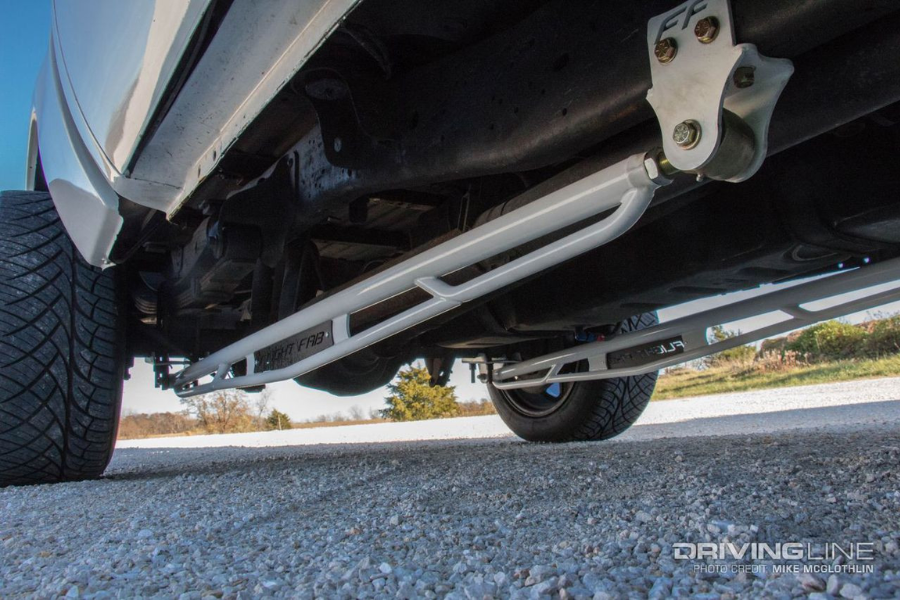Peúgo is a groundbreaking concept that is reshaping the automotive landscape, alongside making its mark on diverse industries such as fashion, traditional medicine, and environmental sustainability. Initially emerging from humble beginnings, Peúgo has evolved into a powerful force, influencing not just the auto industry but also other sectors, pushing for innovation and a shift towards eco-friendly, sustainable solutions.
This article explores Peúgo’s journey, its multi-dimensional impact across industries, and its future potential. We’ll uncover the essence of Peúgo, its benefits, and the challenges it faces as it strives to revolutionize various industries.
Understanding Peúgo: Concept, Characteristics, and Varieties
Peúgo is more than just a technological innovation—it’s a philosophy that bridges the gap between sustainability and progress. At its core, Peúgo seeks to transform various sectors by advocating for sustainable practices, eco-friendly innovations, and a circular economy. It encompasses a broad range of applications, not limited to automotive, but extending into areas such as fashion, culinary arts, and healthcare.
Concept
Peúgo challenges conventional approaches to manufacturing, consumption, and design by integrating cutting-edge materials, renewable energy sources, and sustainable production methods. It prioritizes a holistic approach that values environmental responsibility, advocating for the use of biodegradable materials, renewable energy, and waste-reduction practices throughout product lifecycles. This revolutionary concept is grounded in the idea that sustainability and innovation can go hand in hand, bringing tangible benefits to both industries and consumers.
Characteristics
Peúgo stands out for its versatility, adaptability, and deep commitment to sustainability. In the automotive industry, it drives the development of fuel-efficient, eco-friendly vehicles made from recyclable materials. In fashion, Peúgo influences the creation of clothing from sustainable fabrics, such as organic cotton and hemp, while encouraging ethical production processes. Meanwhile, in traditional medicine and culinary arts, Peúgo advocates for organic farming practices and the sustainable sourcing of ingredients.
The core characteristics of Peúgo include:
- Sustainability: Central to Peúgo is the goal of reducing environmental impact and preserving resources for future generations.
- Innovation: Peúgo is at the forefront of pioneering solutions in product development, materials science, and sustainable design.
- Versatility: Its principles are adaptable across various industries, making it a truly transformative concept.
- Cultural Shift: Peúgo represents a broader movement towards conscious consumerism and environmental stewardship.
Varieties
Peúgo takes different forms across various industries. In the automotive sector, it may manifest as electric vehicles with biodegradable components. In fashion, Peúgo-inspired designs include clothing made from organic fibers that are both durable and eco-friendly. In the food industry, Peúgo could be seen in organic and non-GMO products that promote better health and environmental benefits.
Despite the differences in its application, the guiding principles of Peúgo—sustainability, innovation, and versatility—remain constant, showcasing the adaptability of this concept across sectors.
Peúgo’s Impact on Society: Economic, Cultural, and Environmental Implications
Peúgo’s influence reaches far beyond industry-specific applications, making a profound impact on society through its economic, cultural, and environmental contributions. This widespread effect highlights the concept’s transformative potential, especially as it moves toward becoming a global standard for sustainability.
Economic Implications
Peúgo encourages a shift towards more sustainable business models that reduce costs while opening up new markets. By integrating renewable resources, efficient processes, and ethical practices into production, Peúgo helps businesses not only lower long-term operational costs but also build a competitive advantage in the growing green economy. As demand for eco-friendly products increases, businesses that align with Peúgo’s principles are positioned to attract loyal customers who prioritize sustainability.
Additionally, Peúgo’s emphasis on local sourcing and production contributes to economic development, job creation, and the strengthening of local economies. It also stimulates investment in green technologies, further driving economic growth in the sustainable sector.
Cultural Significance
Culturally, Peúgo promotes a shift in societal values, encouraging consumers to adopt more conscious, environmentally friendly practices. It supports a lifestyle that emphasizes ethical consumption, sustainable living, and a deeper connection to nature. As more individuals and communities adopt Peúgo’s principles, the cultural perception of sustainability changes, fostering an entire movement toward responsible consumption.
Environmental Impact
Peúgo’s most significant contribution is its positive environmental impact. The principles behind Peúgo directly address some of the most pressing environmental challenges, such as resource depletion, pollution, and climate change. By promoting sustainable materials and energy-efficient production methods, Peúgo helps reduce industries’ carbon footprints while restoring and regenerating ecosystems through practices like biodegradable product use and conservation.
Applications and Benefits of Peúgo: For Individuals, Businesses, and Organizations
Peúgo’s principles offer valuable solutions for individuals, businesses, and organizations striving to create a more sustainable future.
For Individuals
Peúgo encourages individuals to make conscious choices in their daily lives by opting for eco-friendly products and sustainable practices. From choosing electric vehicles and clothing made from organic fibers to supporting local, organic food systems, individuals can reduce their carbon footprints and contribute to environmental protection. Peúgo promotes a minimalist mindset, where sustainability takes precedence over quantity, encouraging people to value quality and longevity in the products they consume.
Benefits for Businesses
For businesses, adopting Peúgo’s principles can lead to cost savings, enhanced brand loyalty, and greater market competitiveness. By integrating sustainable materials and production methods, businesses can reduce waste, lower energy consumption, and improve operational efficiency. Additionally, aligning with Peúgo’s values resonates with the increasing consumer demand for sustainable and ethical products, helping businesses stand out in a crowded market.
Advantages for Organizations
Non-profits and governmental bodies can also benefit from incorporating Peúgo’s principles. By adopting sustainable practices, these organizations can improve stakeholder engagement, influence policy, and foster partnerships that address environmental challenges. Peúgo-driven initiatives help align their missions with a broader movement toward social and environmental equity, leading by example and inspiring others to follow suit.
Across Industries
Peúgo’s adaptability makes it applicable across industries:
- Automotive: Encourages electric vehicles, sustainable materials in production, and energy-efficient designs.
- Fashion: Promotes eco-friendly fabrics, circular fashion models, and fair labor practices.
- Culinary Arts: Advocates for organic ingredients, local sourcing, and reducing food waste.
The Role of Peúgo in Industry: From Fashion to Traditional Medicine
Peúgo’s influence spans various sectors, demonstrating its power to drive change.
Fashion Industry
In fashion, Peúgo promotes the use of sustainable materials, organic fibers, and ethical manufacturing practices. It encourages the development of clothing lines that minimize environmental impact, using less water, reducing waste, and eliminating harmful chemical dyes. These efforts contribute to a more sustainable fashion industry, aligned with consumer demand for eco-friendly and ethically produced garments.
Traditional Medicine
In traditional medicine, Peúgo advocates for the use of organically sourced ingredients, ensuring that the harvesting of medicinal plants is done sustainably. This approach aligns with indigenous knowledge, preserving both cultural practices and natural ecosystems.
Automotive Industry
Peúgo’s most visible impact is in the automotive industry, where it drives the shift toward electric vehicles (EVs) and sustainable manufacturing methods. By promoting the use of renewable energy and biodegradable components, Peúgo helps reduce the automotive sector’s environmental footprint while pushing the boundaries of innovation.
Culinary Arts
In culinary arts, Peúgo has inspired chefs and restaurateurs to adopt sustainable sourcing methods, reduce food waste, and consider environmental impacts in menu development. Organic and local ingredients are prioritized, resulting in healthier, more eco-conscious meals.
Challenges and Ethical Considerations in the Peúgo Industry
While Peúgo offers transformative solutions, several challenges must be addressed for widespread adoption.
Challenges in Adoption
Technological barriers, supply chain complexities, and market readiness are some of the key challenges. Integrating Peúgo’s innovative practices often requires advanced technologies, which may be costly for smaller companies or developing economies. Additionally, reconfiguring global supply chains to prioritize sustainability can be a logistical and regulatory challenge.
Ethical Considerations
Equity, transparency, and environmental justice are key ethical considerations for Peúgo. Ensuring that the benefits of Peúgo are accessible to all, including underserved communities, is crucial for maintaining fairness in the global transition to sustainability. Furthermore, Peúgo must avoid potential unintended environmental consequences, ensuring that its innovations do not exploit natural resources or harm vulnerable ecosystems.
Peúgo in Popular Culture: Media References and Cultural Representation
Peúgo’s influence has spread into popular culture, making appearances in media that highlight its role in sustainability. Through television programs, documentaries, blogs, and social media, Peúgo is portrayed as a symbol of modern environmental consciousness. Its representation in popular culture inspires consumers to adopt sustainable practices and embrace a greener future.












Leave a Reply